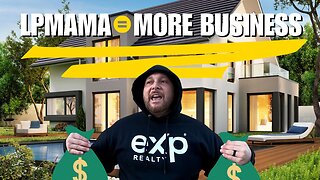Real Estate Syndication VS a Joint Venture
If you have put a few smaller real estate deals together by creating partnerships and raising money, chances are you may have created a Joint Venture to get the deal done. But if you plan on taking it to the next level and raise capital for larger multifamily deals, you will want to know a little more about your options. Doing so will not only protect you as the person putting the deal together, but will also protect the investor in terms of understanding the risks when it comes to investing.
There are two common partnership structures: The Syndication and the Joint Venture. Each has their own advantages and disadvantages, but executing the right one is absolutely important to how you execute and build your real estate business.
Before I go on, please note that I am not an attorney. I am only offering some high-level information for educational purposes only. You should talk to a real estate attorney and a securities attorney to determine what structure works best for the project you are working on.
Back in 1946, a case was decided by the Supreme Court where the SEC challenged a man named William John Howey because of the manor he sold off pieces of his land as an investment contract. The result from the case is something called ‘The Howey Test’. From this test, you will be able to determine whether you are forming a syndication or a joint venture.
There are four questions to the test:
1. Is there an investment of money?
2. Is there an expectation of profits from the investment?
3. Is the investment of money in a common enterprise (that is, investors pool their money or assets together to invest in a project)?
4. Do any profits come from efforts of a promoter or third-party?
We know that in both syndication and joint ventures, there is “1. An investment of money” and “2. There is an expectation of profits from the investment”. You can also say that the third rule is true. The main difference is the fourth part: “Any profit comes from efforts of a promoter or third-party”. If this fourth rule is true, then the deal can be classified as an “investment contract”, or syndication. If the fourth rule is false, then it could be a security, or joint venture.
If this is a joint venture, the investors are actively involved with the ongoing management of the deal. They need to have a named role in the deal and you must be able to prove they actually performed their duties to the job description. The individuals or companies in the venture are pooling their resources to work toward a common goal and all parties involved are managers in the deal.
An example would be if three contractors got together to work on the electrical, HVAC and plumbing on a fix-and-flip deal. All three contractors have defined roles and are actively working on the project. And since they are all managers, they have unlimited liability. Any decisions need to be done by majority rule and a single person cannot override the other two.
A joint venture is much easier to set up and are less expensive to form as there is no registration needed with the SEC. Regardless, you should still have your attorney draft the documents so everyone on the team is clear on their responsibilities.
If this is a syndication, then you are selling a security and you must have your attorney register with the SEC as regulated securities. While the “general partnership” portion of the syndication is a joint venture, the partnership between the general partnership (the syndicators) and the limited partnership (the passive investors) is a syndication. Unlike a joint venture, a syndication adheres to the fourth rule - “Any profit comes from efforts of a promoter or third-party”, with the third party being the general partnerships, or the syndicators. The investors are not actively involved in the management of the project and they are passive.
It’s also worth noting that setting up a syndication is a bit more expensive because of the supporting paperwork that needs to be drafted along with the registration with the SEC. Again, you should talk to your securities attorney about this part and don’t skimp on hiring a good attorney.
Finally, it is important to remind you that you should talk to a securities attorney before forming a partnership to take down a deal. If you form a joint venture when a syndication is actually needed, the non-compliance with the securities laws can cost you thousands of dollars in fines with the SEC or even land you in jail.
If you liked this, go ahead and give it a thumbs up. Also, check out the Bulletproof Cashflow podcast on iTunes or Stitcher, and subscribe to our YouTube channel. We are working on getting new content out all the time to help you build your success in the world of multifamily.
Be great.
-
 4:31
4:31
bulletproofcashflow
3 years agoWhat is Multifamily Syndication?
123 -
 13:02
13:02
bulletproofcashflow
3 years agoMultifamily Syndication: Basics Explained
65 -
 1:11
1:11
The Last Capitalist in Chicago
1 year agoWhat is real estate syndication?
30 -
 35:45
35:45
Investor Financing Podcast
1 year agoScale Your Syndication Business: Proven Strategies to Organize and Grow Your Business
25 -
 39:37
39:37
depictionsmedia
1 year agoWhat is Real Estate Syndication
69 -
 38:32
38:32
Investor Financing Podcast
5 months agoCreative Deal Structuring in Real Estate: Low to No Money Out of Pocket
40 -
 50:34
50:34
AdaptWealth
1 year agoWhy Real Estate Syndication?
6 -
 42:06
42:06
Investor Financing Podcast
1 year agoFinancing Options for Multifamily Properties
60 -
 4:51
4:51
hauseit
4 years agoWhy Are Real Estate Agents Independent Contractors vs Employees?
86 -
 6:23
6:23
Real Estate Agent Tips with Josh
6 months agoREALTORS - How to be Successful in Real Estate - How to Get New Clients using LPMAMA
41